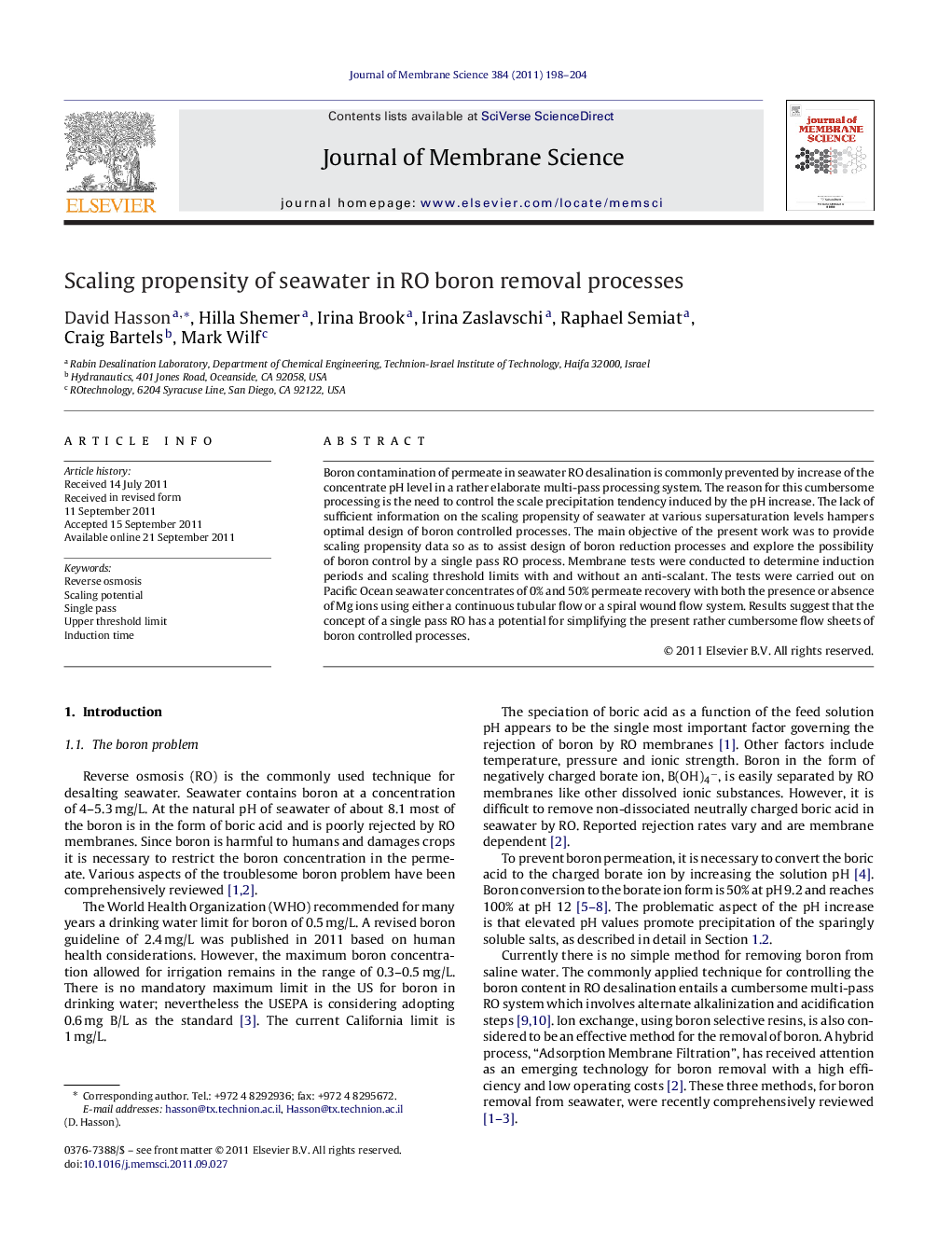| Article ID | Journal | Published Year | Pages | File Type |
|---|---|---|---|---|
| 635403 | Journal of Membrane Science | 2011 | 7 Pages |
Boron contamination of permeate in seawater RO desalination is commonly prevented by increase of the concentrate pH level in a rather elaborate multi-pass processing system. The reason for this cumbersome processing is the need to control the scale precipitation tendency induced by the pH increase. The lack of sufficient information on the scaling propensity of seawater at various supersaturation levels hampers optimal design of boron controlled processes. The main objective of the present work was to provide scaling propensity data so as to assist design of boron reduction processes and explore the possibility of boron control by a single pass RO process. Membrane tests were conducted to determine induction periods and scaling threshold limits with and without an anti-scalant. The tests were carried out on Pacific Ocean seawater concentrates of 0% and 50% permeate recovery with both the presence or absence of Mg ions using either a continuous tubular flow or a spiral wound flow system. Results suggest that the concept of a single pass RO has a potential for simplifying the present rather cumbersome flow sheets of boron controlled processes.
► Boron concentration in RO desalination of seawater is controlled by pH increase which promotes scaling propensity. ► This study provides hitherto lacking data for determining scaling limits in boron control processes. ► Induction times and thresholds of CaCO3 precipitation were determined for 0% and 50% water recovery as a function of the pH. ► Effects of the presence of Mg and of an anti-scalant on the CaCO3 scaling propensity are described. ► The possibility of simplifying current boron control design to a single pass system is analyzed.
